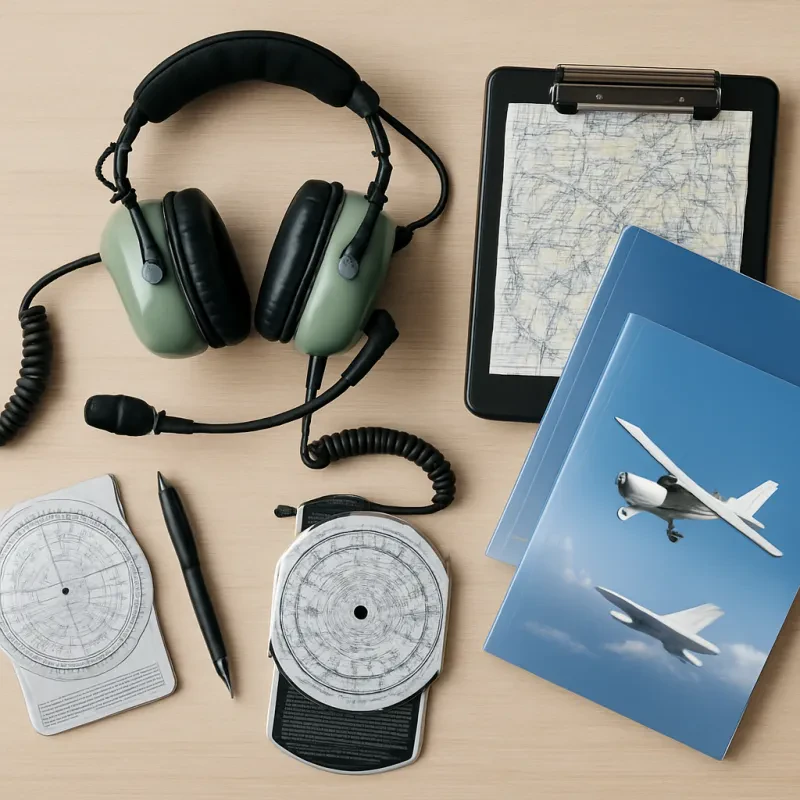Flight instructors play a critical role in shaping the future of aviation. Their expertise and guidance are instrumental in nurturing aviation enthusiasts, turning their dreams of flying into a reality. Flight instructors not only teach the technical aspects of flying but also instill a passion for aviation and a strong commitment to safety.
One of the primary responsibilities of flight instructors is to impart their extensive knowledge and skills to aspiring pilots. They provide thorough classroom instruction on topics such as aerodynamics, navigation, weather patterns, and aircraft systems. This theoretical foundation equips students with the necessary knowledge to understand the principles of flight and prepare them for real-life scenarios.
However, flight instructors go beyond classroom teaching. They also provide practical hands-on training, taking students up in the sky to put theory into practice. By letting students take the controls and experience the thrill of flying firsthand, flight instructors help build the confidence and skills needed to become proficient pilots.
Moreover, flight instructors are not just focused on skill development, but also the cultivation of a strong safety culture. They continuously emphasize the importance of adhering to safety protocols, performing thorough pre-flight checks, and being aware of potential risks during flight. Through their constant reinforcement of safety practices, flight instructors help instill a mindset that ensures the well-being of pilots and passengers alike.
Harnessing Skills: How Flight Instructors Enhance Pilots' Abilities
Flight instructors play a crucial role in shaping the abilities of aspiring pilots and enhancing their aviation potential. Through their skills and expertise, flight instructors impart valuable knowledge, training, and guidance that allow pilots to soar to new heights. By harnessing these skills, flight instructors lay the foundation for safe and competent flying, paving the way for a successful aviation career.
One of the key ways flight instructors enhance pilots' abilities is through comprehensive theoretical instruction. They provide comprehensive knowledge on a wide range of topics, such as aerodynamics, aviation regulations, and aircraft systems. This theoretical knowledge forms the backbone of a pilot's understanding, enabling them to make informed decisions and react effectively in different flight scenarios.
In addition to theoretical instruction, flight instructors also play a critical role in honing pilots' practical skills. They guide aspiring pilots through countless hours of flight training, helping them develop the necessary motor skills, coordination, and judgment to handle an aircraft safely and efficiently. Flight instructors ensure that pilots master essential maneuvers, such as takeoffs, landings, and emergency procedures, and they provide constant feedback to help pilots refine their techniques and improve their overall flying abilities.
Moreover, flight instructors help build pilots' situational awareness and decision-making skills. They teach aspiring aviators to think critically, analyze complex flight situations, and prioritize their actions. Flight instructors expose pilots to simulated real-life scenarios, allowing them to practice making quick and accurate decisions while under pressure. These experiences enable pilots to develop a strong sense of situational awareness – a vital skill for safe and effective flying.
Breaking Barriers: Flight Instructors Paving the Way for Innovation
Flight instructors hold a paramount role in the aviation industry, not only teaching aspiring pilots how to fly but also playing a significant role in shaping the future of aviation. They are not merely instructors, but trailblazers who pave the way for innovation in aviation. By imparting their knowledge, skills, and experience to aviation enthusiasts, these instructors are unlocking the true potential of the industry and shaping tomorrow's aviators.
Flight instructors are crucial in training and mentoring future pilots, helping them overcome challenges and prepare for the vast opportunities aviation offers. They instill discipline, expertise, and a deep understanding of flight mechanics, leading to safer and more efficient operations. By focusing on the development of technical proficiency, critical thinking, and problem-solving, flight instructors nurture a new generation of pilots who are inspired to push boundaries and embrace new technologies.
Moreover, flight instructors are at the forefront of technological advancements in aviation. They play an essential role in introducing and integrating cutting-edge technologies into flight training, such as flight simulators, advanced navigation systems, and drone technology. By incorporating these innovative tools, flight instructors enable pilots to gain invaluable experience in realistic yet controlled environments, preparing them for real-world challenges.
The Flight Instructors' Toolbox: Empowering Future Aviation Leaders
In the dynamic field of aviation, flight instructors play a crucial role in shaping the next generation of pilots and aviation leaders. These skilled professionals possess a vast toolbox of knowledge, experience, and resources that empower aspiring aviators to reach their full potential.
One essential tool in a flight instructor's repertoire is their ability to foster a strong foundation of theoretical knowledge. Through comprehensive ground instruction, instructors impart invaluable information on aerodynamics, weather patterns, navigation, aviation regulations, and much more. By equipping students with this solid theoretical base, flight instructors lay the groundwork for safe and knowledgeable pilots who can effectively navigate the complexities of the skies.
Furthermore, flight instructors are instrumental in developing the practical skills and proficiency of aspiring pilots. Through hands-on flight training, instructors guide students in mastering essential techniques like takeoff and landing, maneuvering various aircraft, managing emergencies, and honing their decision-making abilities. By providing tailored guidance and mentoring, flight instructors help students build confidence and competence in the cockpit, preparing them for successful careers in aviation.
Flight instructors also inspire future aviation leaders by sharing their own experiences and insights. Their personal anecdotes and lessons learned contribute to a rich learning environment, motivating students and giving them a glimpse into the realities of a career in aviation. These mentors often serve as inspirations, offering guidance on navigating industry challenges, fostering resilience, and encouraging a strong work ethic. This aspect of the flight instructors' toolbox is crucial in creating a new generation of aviation professionals ready to face the evolving demands of the industry.


